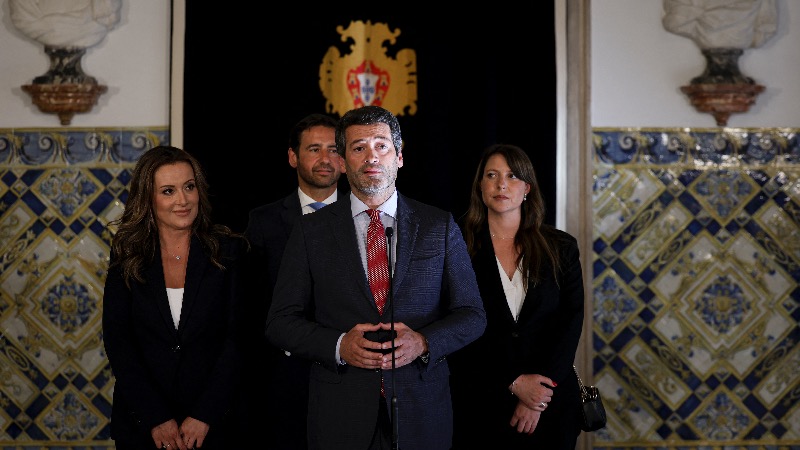 Image Credit: FILIPE AMORIM / Contributor / Getty
Image Credit: FILIPE AMORIM / Contributor / Getty On Wednesday, July 16, Portugal approved a major reform of its Immigration Law, marking a significant turning point in the country’s migrant policy. With the backing of the center-right and the patriotic party Chega, Parliament gave the green light to a series of measures that tighten rules on family reunification, strengthen border control, and raise the requirements for obtaining residence permits.
The reform, driven by the government of Prime Minister Luís Montenegro, now awaits a decision from President Marcelo Rebelo de Sousa, who has 20 days to either ratify or veto the bill. Although opposed by left-wing parties, the approval reflects a growing trend across Europe: the pursuit of order and responsibility in managing immigration.
Among the most significant changes is the requirement for immigrants to have a minimum of two years of legal residence before applying for family reunification. Previously, no waiting period was necessary. Furthermore, only minor family members who entered the country legally or those linked to highly qualified workers will be eligible. The aim is to curb the abuse of legal loopholes to obtain residency permits through the back door.
Economic and housing criteria are also being tightened. It is no longer sufficient to simply have shelter and minimal income; housing must meet health and safety standards, and applicants must demonstrate they have sufficient resources to avoid relying on social assistance. A new requirement has also been introduced: basic knowledge of the Portuguese language and the country’s constitutional values. The timeframe for processing applications has been extended from three to nine months.
The reform also removes special provisions for citizens of Portuguese-speaking countries. They will now need a residence visa to regularize their status, rather than relying on tourist or short-stay visas.
An even more ambitious proposal is scheduled for a vote in September: eliminating the right to citizenship by birth for children of migrants. If passed, Portugal would align itself with a growing European trend emphasizing cultural and legal ties to the nation as the basis for citizenship.
This Portuguese shift—orderly, legalistic, and increasingly backed by public opinion—could serve as a model for other European countries grappling with the limits of multiculturalism. Rather than idealistic rhetoric, Lisbon is putting forward a realistic approach: integration, protection of national sovereignty, and responsibility in the face of mass immigration that threatens to overwhelm public services and undermine social cohesion.
BREAKING: Dark Infowars’ Origin Story



